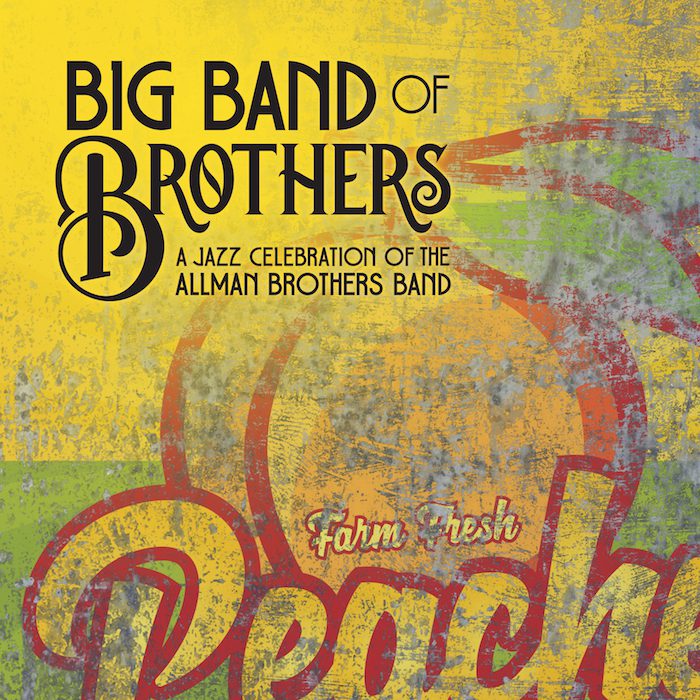‘A Jazz Celebration’ Shines a New Light on Songs of The Allman Brothers Band

The Big Band of Brothers couldn’t have chosen a better band to celebrate with jazz versions of the songs of The Allman Brothers Band. An impulse toward many forms of jazz always lay in The Allman Brothers Band’s music, especially in songs where jazz and blues shaded over into one another such as “It’s Not My Cross to Bear,” or in songs such as “Les Brers in A Minor,” which builds layer by layer on a jazz foundation anyway. Released just two days following what would have been Duane Allman’s 73rd birthday and in time to celebrate the 50th anniversary of The Allman Brothers Band’s eponymous debut album, A Jazz Celebration of the Allman Brothers Band delivers an oceanic wave of sound that engulfs us with its propulsive rhythms and soaring horns.
The 15-piece Band of Brothers, featuring guests such as Wycliffe Gordon on soprano trombone and guitarist Jack Pearson — who performed as a member of The Allman Brothers from 1997 to 1999 — captures every emotional nuance in these songs while exploring their various musical textures and sonic structures. The opening track, “Statesboro Blues,” opens with Andy Nevala’s gently traipsing piano weaving around Chris Kozak’s bass, then adds Matt Casey’s raw slide guitar, Chad Fisher’s trombone, and Marc Broussard’s edgy vocals to carry the tune off in a jazz-blues romp, fueled by a fiery bridge of brass and saxes. The band turns in a slow-burning blues version of “It’s Not My Cross to Bear,” propelled by Mace Hibbard’s plaintive alto sax floating on the crying strains of Nevala’s B3. Ruthie Foster’s down-to-the-heart-and-bone vocals capture the dueling sorrow and never-gonna-look-back character of the song.
Every song on A Jazz Celebration of the Allman Brothers Band reveals the musical nuances, as well as the musical genius, of The Allman Brothers Band’s music. Some Allman Brothers purists may object to these versions of the songs, but Gregg was already playing these notes and measures in his solo albums and in his jams with the band onstage, and Duane was restlessly exploring every style of music before he died, especially with Boz Scaggs and King Curtis. These versions open the songs up to new musical territories, and offer fresh notes by which to hear them.


